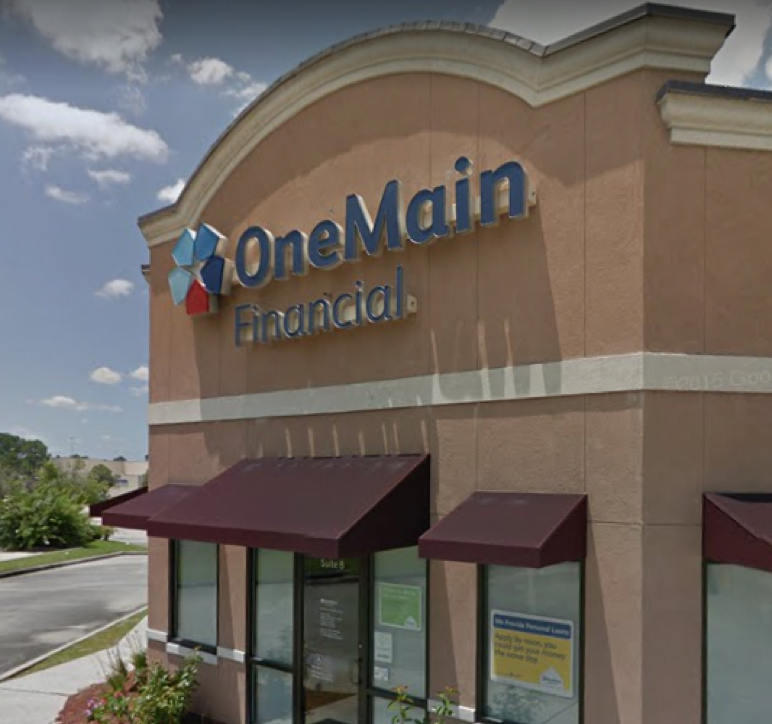
Apollo, Varde Partners to acquire OneMain, largest subprime installment lender
January 15, 2018
On January 4, private equity firms Apollo Global Management and Varde Partners announced that they are acquiring Fortress Investment Group’s stake in OneMain Holdings, the largest subprime installment lender in the country. The acquisition is expected to close during the second quarter of 2018. Upon completion of the transaction, the Apollo and Värde led investor group will own approximately 40.5% of OneMain.
Following the announcement, consumer advocates including the National Consumer Law Center, the Center for Responsible Lending, Americans for Financial Reform, and People’s Action sent letters to Apollo Global Management and Varde Partners requesting that the firms ensure their investments in payday and installment lending abide by standards including (1) a 36% all-in APR cap (or state cap if lower), (2) determining that a borrower has the ability to repay a loan, (3) no mandatory arbitration, (4) no arrangements (e.g. tribal lending OR “rent-a-bank” schemes) to circumvent state laws, and (5) no lobbying or funding of referenda to increase allowed rates, fees.
In recent years, OneMain has been especially aggressive in lobbying to weaken consumer lending rules at the state level (see NewYork Times, “Subprime Lender, Busy at State Level, Avoids Federal Scrutiny,” Sept. 6, 2016).
From our December 2017 report on OneMain:
While OneMain generally offers lower interest rates on its loans than payday lenders, the firm also sells ancillary products such as insurance that can significantly increase costs for borrowers. Although the company describes its life insurance and other policies as voluntary, which enables the lender to claim that the costs can be excluded from APR calculations, some policies are opened without customers’ approving them at the time, the New York Times reported in July 2016.[i] The insurance OneMain sells to customers is provided by a wholly owned subsidiary of the company.[ii]
OneMain reportedly caps its loans at 36% interest.[iii] Yet additional fees and charges can increase the true interest that a borrower pays. In Missouri, for example, OneMain reports that its maximum interest rate on personal loans is 36%. Yet the firm also adds a “prepaid finance charge of the lesser of 5% of principal amount or $75 per loan.”[iv] In addition to increasing the cost of the loan for the borrower, such fees can incentivize refinancing. In early 2015, OneMain reported that 59% of the loans it had made in the prior year were renewals.[v] In addition, a growing percentage of OneMain’s loans are secured by borrowers’ cars, thus putting a significant asset at risk in the case of default.[vi]
OneMain (and before that Springleaf) has significantly increased its capacity to lend by packaging loans it makes into securities that it sells to investors. Following the firms’ acquisitions by Fortress, they have issued more than $6.6 billion of these securities.[vii]
Springleaf/OneMain has also been aggressive in persuading state lawmakers to relax restrictions on consumer lenders.[viii] In 2016, OneMain pressed for legislative changes in about eight states, the New York Times reported in September. Since 2012, when its lobbying campaign began in earnest, OneMain has helped enact legislative changes in at least 10 states.[ix]
[i]“How Private Equity Found Power and Profit in State Capitols,” New York Times, Jul 15, 2016.
[ii]OneMain Holdings Form 10-K, Feb 21, 2017.
[iii]“Subprime Lender, Busy at State Level, Avoids Federal Scrutiny,” New York Times, Sept 6, 2016.
[iv]OneMain Missouri maximum rate schedule, www.onemainfinancial.com, accessed Aug 3, 2017.
[v]OneMain Financial Holdings Form S-1/A, Feb 11, 2015.
[vi] 43% of OneMain’s loans were secured as of the end of 2016 vs. 27% at the end of 2015. OneMain Holdings Form 10-K, Feb 21, 2017.
[vii]https://finsight.com/sponsor/47, https://finsight.com/sponsor/219, accessed Sept 22, 2017.
[viii]“How Private Equity Found Power and Profit in State Capitols,” New York Times, Jul 15, 2016.
[ix] “Subprime Lender, Busy at State Level, Avoids Federal Scrutiny,” New York Times, Sept 6, 2016.
